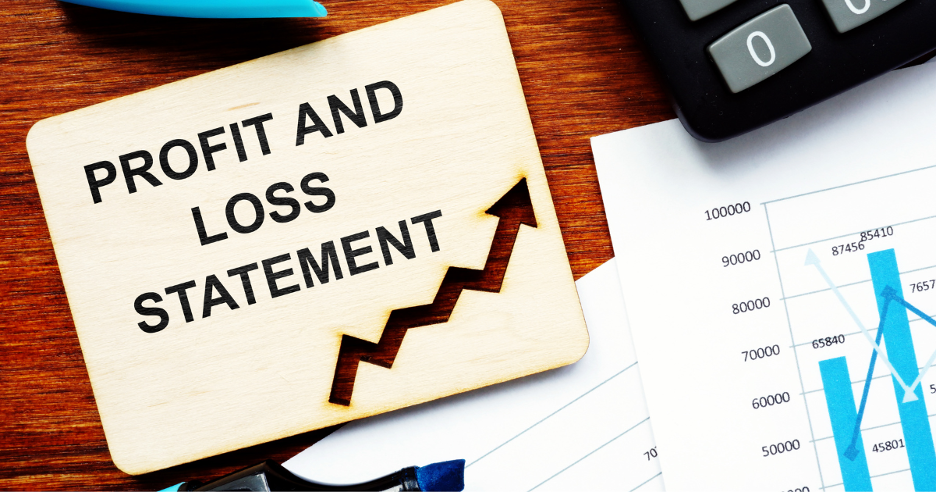
If you’re a small business owner trying to gain a better understanding of your company’s financial health, your profit and loss (P&L) statement is a powerful starting point. Also known as an income statement, this essential report reveals how much money your business earns or loses over a specific period.
At PL Consulting, we help small and mid-sized businesses (typically those with annual revenues of $1–$ 15 million) gain financial clarity through accurate bookkeeping, tax services, and strategic growth support. In this guide, we’ll walk you through how to read a P&L, what it tells you, and how to use it to make smarter business decisions.
What Is a Profit and Loss Statement?
A profit and loss statement summarizes your business’s revenues, costs, and expenses over a set timeframe, typically monthly, quarterly, or annually. It shows whether your company made a profit (net income) or took a loss during that period.
This document is essential for:
- Tracking business performance
- Making informed spending decisions
- Preparing for tax season
- Presenting financials to lenders or investors
- Planning for future growth
Key Components of a P&L Statement
| Section | Description |
| Revenue (Sales) | The total income from goods sold or services rendered. |
| Cost of Goods Sold | Direct costs of producing or delivering your product/service. |
| Gross Profit | Revenue minus Cost of Goods Sold. |
| Operating Expenses | Indirect costs include rent, salaries, utilities, and marketing. |
| Operating Profit | Gross Profit minus Operating Expenses (also called operating income). |
| Other Income/Expenses | Interest income, gains/losses, or unusual one-time expenses. |
| Net Profit (Loss) | The bottom line—what’s left after all expenses? |
Why P&L Statements Matter for Small Business Owners
1. Monitor Financial Health
Regularly reviewing your P&L helps you identify trends, such as increasing costs or declining revenue, before they become serious problems.
2. Guide Business Decisions
Use the P&L to evaluate the return on investments in areas like marketing or hiring. Are your efforts increasing revenue?
3. Simplify Tax Filing
Your accountant or outsourced bookkeeping provider (like PL Consulting) will rely heavily on your P&L when preparing your taxes. A clean and current statement streamlines tax compliance services and prevents missed deductions.
4. Secure Financing or Investment
Lenders and investors want to see your profitability trends. A solid P&L gives them confidence in your business.
Common Mistakes to Avoid
Even well-meaning business owners sometimes make costly mistakes with their profit and loss (P&L) statements.
| Mistake | Why It’s a Problem |
| Mixing Personal and Business Finances | Skews your income and expense data, making the P&L unreliable. |
| Ignoring COGS | Leads to overstating profits and underestimating the cost of your offerings. |
| Inconsistent Categorization | Makes it hard to track trends or spot red flags. |
| Not Reviewing Regularly | Delays critical decisions and may lead to missed opportunities or risks. |
Outsourced bookkeeping services for startups and growing businesses can help eliminate these issues with consistent and accurate reporting.
How to Read a Profit and Loss Statement (Step-by-Step)
Step 1: Review Total Revenue
This is your gross income from all sales during the period. If you offer services in multiple categories (e.g., consulting + products), breaking it down by revenue stream provides more insight.
Step 2: Subtract Cost of Goods Sold (COGS)
These are your direct costs. For service-based businesses, such as law firms or consulting firms, this could include contractor payments or software licenses.
Step 3: Analyze Gross Profit
Gross Profit = Revenue – COGS
This indicates the amount you earn before deducting indirect expenses.
Step 4: Review Operating Expenses
These are your everyday business expenses. Watch for:
- Salaries/wages
- Rent or home office costs
- Insurance
- Marketing and advertising
- Software subscriptions
Step 5: Look at Net Profit (or Loss)
This is your “bottom line.” A consistent net loss could indicate it’s time to reassess your pricing model, eliminate unnecessary expenses, or revisit your budget planning and forecasting.

Sample Profit and Loss Statement (Monthly)
| Category | Amount ($) |
| Revenue | $60,000 |
| Cost of Goods Sold | $25,000 |
| Gross Profit | $35,000 |
| Rent | $3,000 |
| Salaries | $15,000 |
| Marketing | $2,500 |
| Software | $500 |
| Insurance | $400 |
| Utilities | $600 |
| Total Expenses | $22,000 |
| Net Profit | $13,000 |
How Bookkeeping Supports Accurate P&Ls
Your P&L is only as reliable as the data that feeds into it. That’s why accurate, consistent bookkeeping is essential.
Services that Support This Include
- Monthly bookkeeping services to maintain up-to-date records
- Accounts payable and receivable services to track cash flow
- QuickBooks clean-up to fix messy records
- Payroll services to track and manage compensation correctly
At PL Consulting, we specialize in bookkeeping for small businesses, including:
- Bookkeeping for real estate agents
- Bookkeeping for consultants
- Bookkeeping for e-commerce businesses
- Bookkeeping for non-profits
- Bookkeeping for startups and freelancers
This means your P&L is always based on clean, accurate numbers.
Using P&Ls for Business Growth
Once your P&L is in order, it becomes a strategic tool for scaling your business.
1. Set Revenue Goals
Track month-over-month changes and set realistic growth goals based on past performance.
2. Manage Expenses
Compare expense categories across periods. Are certain expenses creeping up without adding value?
3. Build Forecasts
Use your P&L as a basis for financial forecasting services—essential for seasonal planning, hiring decisions, and expansion.
4. Understand Break-Even Points
When do your revenues cover your costs? Your P&L helps you calculate this and assess the profitability of new initiatives.
When to Get Help with Your P&L
Many small business owners start out managing financials themselves, but as your business grows, so does the complexity. If you:
- Struggle with accurate categorization
- Don’t have time to update your records
- Want to improve financial forecasting
- Need to prepare for tax season
- Are unsure how to read your reports
…it’s probably time to outsource your bookkeeping or get financial reporting services.
Choosing the Right Support Partner
When seeking assistance with your P&L and other financial tasks, consider a provider who understands your business’s size, industry, and objectives.
PL Consulting offers:
- Bookkeeping and accounting services
- Tax and accounting services
- QuickBooks clean-up
- Personalized strategies for business growth
- Industry-specific support for consultants, law firms, VAs, contractors, and more
Whether you need help with monthly bookkeeping, tax compliance, or creating a roadmap for sustainable growth, our team is here to guide you every step of the way.

Your P&L Is More Than Just a Report
Understanding your profit and loss statement is essential for making informed and confident decisions about your business. It’s not just a tool for tax season, it’s a roadmap for sustainable success.
If you’re unsure where to start or need assistance with cleaning up your books, PL Consulting is here to help. We work with businesses across the U.S. who want peace of mind, clarity, and a better way to grow.
Let’s Bring Clarity to Your Numbers
Ready to get a clearer picture of your business performance?
Contact PL Consulting today to schedule a complimentary consultation and discover how we can help you establish a stronger financial foundation.
Visit Our Blog for more helpful insights. Let’s talk strategy: https://plcfo.com/
